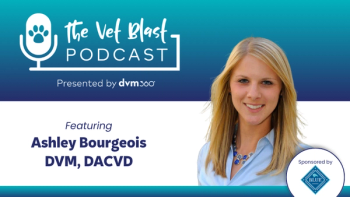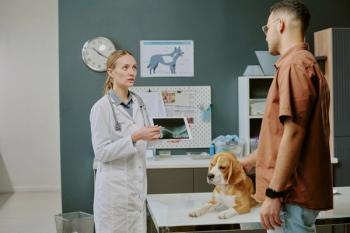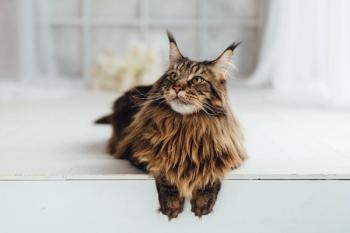
Support normal respiratory and ocular health in patients with feline herpesvirus infection
ADVERTISEMENT Adding L-lysine to your toolbox to help support patients with feline herpesvirus infection gives you a concrete step to offer concerned clients.
As you know, feline herpes virus-1 (FHV-1) is one of the most common causes of upper respiratory infection and ocular problems in cats. The virus is widespread in the cat population and is similar to the human herpesvirus in that it remains latent in the nervous system of carrier cats for life, occasionally flaring up after periods of stress.
First-time infections with FHV-1 usually occur in neonatal kittens or young cats. These cats develop signs of respiratory infection that may include sneezing, pyrexia, lethargy, inappetence, nasal discharge, and conjunctivitis.
While most cats spontaneously recover from a first-time FHV-1 infection within 10 to 14 days, approximately 80% become latent carriers. Of these cats, 45% will either have clinical signs that recur after periods of stress or will shed the virus without any outward signs of illness.
Unfortunately, there is no cure for FHV-1. And that can be a distressing message to deliver to clients. Wish there were more you could do?
Take the next step
Arm your team to educate clients by requesting copies of this
In addition or as an adjunct to other supportive therapy for cats with FHV-1 infection, L-lysine supplementation is thought to help suppress viral replication, which may reduce clinical signs and shedding of the virus. It is well tolerated by most cats.
In published studies of herpesvirus infected cats, L-lysine supplementation resulted in less severe clinical signs and helped reduce viral shedding in latently infected cats (as compared to placebo or control groups).1,2 And the use of L-lysine has been advocated by many veterinary specialists, particularly in chronic cases of FHV-1.
Arm your team to support affected cats (and their owners) by requesting free FHV-1 educational materials for your clients here.
1 Stiles J, Townsend WM, Rogers QR, Krohne SG. Effect of oral administration of L-lysine on conjunctivitis caused by feline herpesvirus in cats. American Journal of Veterinary Research, January 2002, 63(1): 99-103
2 Maggs DJ, Nasisse MP, Kass PH. Efficacy of oral supplementation with L-lysine in cats latently infected with feline herpesvirus. American Journal of Veterinary Research, January 2003, 64(1): 3-42
Since 1933, Vetoquinol has been a pioneer in the animal health field and has developed hundreds of innovative treatment options for use by veterinarians around the world. We embrace the challenge of finding better ways to help animals and believe veterinarians should have access to the best information and training. Our caring professionals passionately work to develop new products and protocols in many areas.
Newsletter
From exam room tips to practice management insights, get trusted veterinary news delivered straight to your inbox—subscribe to dvm360.




